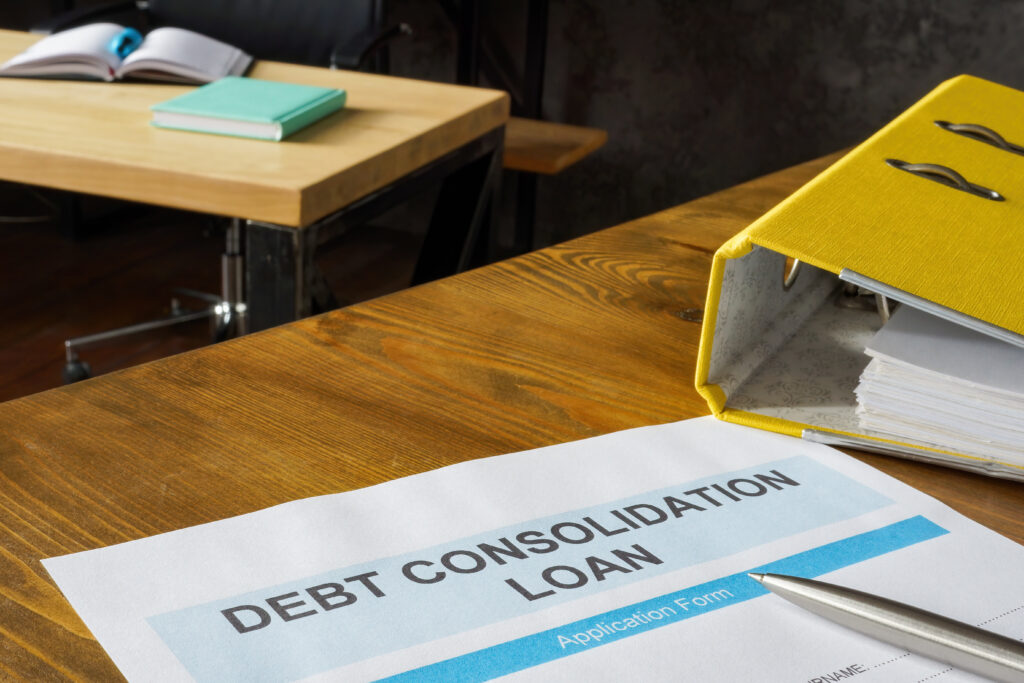
One of the most disturbing trends in money management is overuse of debt consolidation loans. Sure, they may be the perfect solution for people who have gotten into unforeseen financial trouble, but debt consolidation loans are too often used to treat symptoms instead of addressing an underlying problem. One of the greatest myths about these loans is that they save money on interest. The only way interest rates get cut is when someone borrows against home equity, but home equity loans can become a crutch as well.
Bankruptcy attorneys have seen many clients come into their office after thinking they had “fixed” their finances through debt consolidation, only to find out later on that the old habits are still there. They just “moved” the debt to a different collector. It’s a bad idea to think you can borrow your way out of debt. A true fix will be neither quick nor easy, but it will have a lasting effect.
People who find themselves in debt frequently are likely to avoid addressing its real source, which is overspending and undersaving. Financial coaches rarely recommend a debt consolidation loan for clients because they know it doesn’t work.
Statistics about debt consolidation
Some debt consolidation firms estimate that more than 78 percent of the time, after a client consolidates credit card debt, it gradually grows back. The reason for this is the client hasn’t developed a game plan to prevent it from happening, such as saving for unexpected events or paying cash all the time.
When a debt consolidation offers lower monthly payments, most people feel like they’ve “won,” but they soon find that the lower payment isn’t coming from lower rates; just a longer payment term. Staying in debt longer usually means you pay the lender more money, which explains why so many lenders jumped into the debt consolidation business.
For example, say you’ve accumulated $30,000 in unsecured debt, including a four year loan for $20,000 at 10% and a two-year loan for $10,000 at 12%. Your monthly payment on the $20,000 loan would be $583 and you would pay $517 on the $10,000 loan, with monthly payments totaling $1,100. A debt consolidation company comes along and tells you they can lower your payment to $640 per month and by negotiating with your creditors lower your interest rate to 9% because all of your loans would be rolled into one. While this may sound tempting, what they don’t tell you is now it will take you six years to pay off the loan. Instead of paying the $40,392 you would have owed on the original loans, now you’re paying $46,080, even with the lower interest rate of 9%. Not such a great deal after all. But now do you see why these debt consolidation companies are so profitable?
How Can You Really Get Out of Debt?
The solution is not in the interest rate. You will need to change your spending habits by committing to a written game plan and sticking with it. If needed, get a second job and start paying down your debt. Figure out how to live on less than you earn and be frugal! Changing your habits isn’t easy, but it will put you on the path to financial freedom and out of bankruptcy court, which is where you want to be.
Will a Debt Consolidation Damage Your Credit Score?
A lot of people think that a debt consolidation will make their credit report look better because it will show a lot of closed, paid-off accounts. But the answer really depends on what you do afterwards. If you get the debts consolidated and then start using your old credit cards again it will hurt your credit score. The best thing to do after a debt consolidation is to cut up your cards and stop filling out credit card applications. Make your loan payments on time every month and check your credit score regularly for any changes.
Consolidating credit cards with high balances using an installment loan — a loan with fixed monthly payments — may actually benefit your credit rating, especially if you use the loan to pay off credit cards that are near their limits. At the same time, any new loan can cause a short-term dip to your credit scores — so don’t be surprised if that happens.
Transferring a high-rate credit card balance to a card at a lower rate can be another way to consolidate. If you decide to go this route it’s important to be disciplined in your approach. Otherwise, you may fall into traps such as getting stuck with a balance at a high interest rate after the introductory period ends. If you use a substantial portion of the available credit on the card to consolidate balances from other cards with lower balance-to-available-credit ratios, your credit scores may drop.
Remember, moving around debt is not the goal here. The goal is to pay off those balances to free up cash flow as well as to help build strong credit. A consolidation loan, used correctly, can help you get there just a little faster.
Contact Us today for more information and to receive a free consultation.





